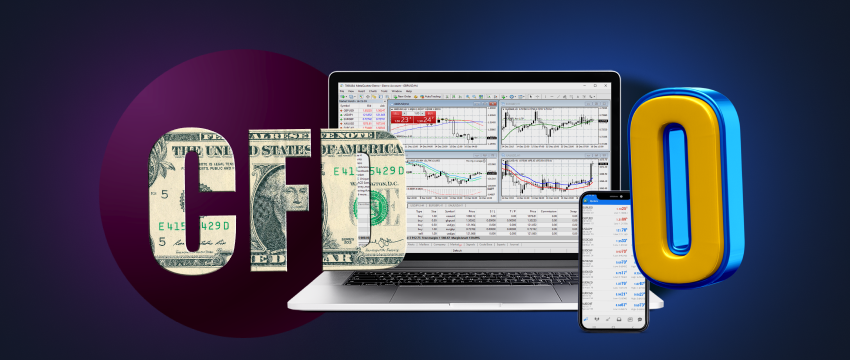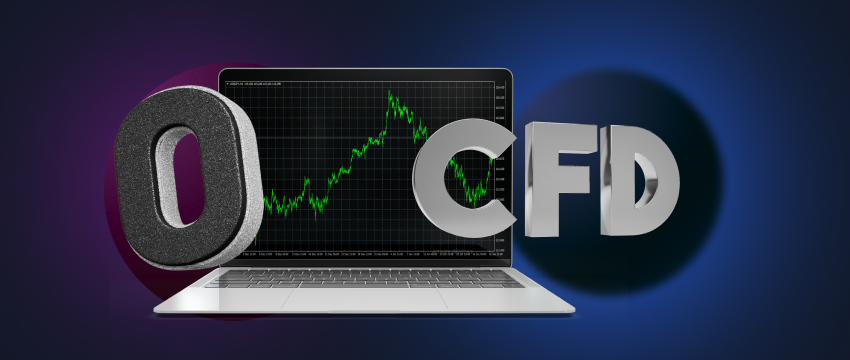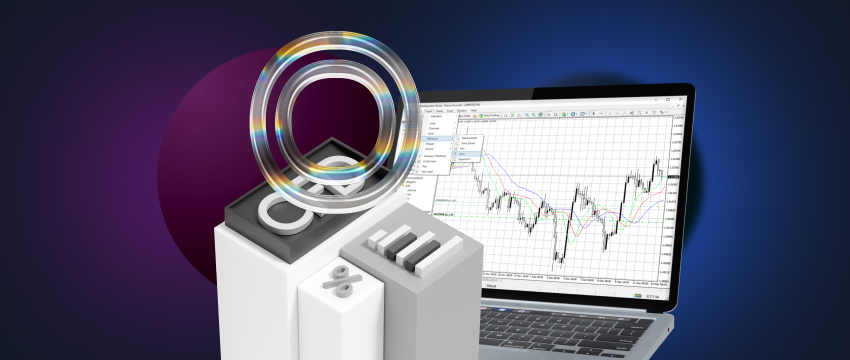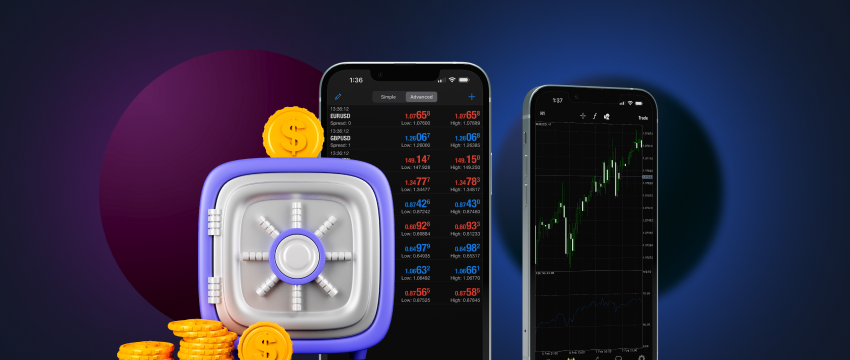To answer this question, let’s first better understand what a zero-sum game is in the context of finance. In game theory, CFD trading, and economic theories, people use the term “zero-sum game.” It typically proposes that one person’s gain is equal to another’s loss, where the net change in wealth or benefit is zero.
Let’s explore this concept a little more. Merriam-Webster describes a zero-sum game as “a situation in which one person or group can win something only by causing another person or group to lose it”. Cambridge Dictionary defines it as “a situation in which one side gains an advantage at the expense of the other.”
In the context of CFD trading, opinions differ. However, many people hold the perspective that CFD trading can be viewed as a zero-sum game because for every winner, there is a corresponding loser. In other words, when a trader buys a CFD, someone else (usually the broker) is selling it, and vice versa.

Based on what factors can CFD trading be called a zero-sum game?
In CFD trading, the trader is able to go long (buy) or short (short). What this means is that for every long position, there is an opposing short position. In this scenario, should somebody make a profit, someone else will likely be losing the equivalent amount.
Secondly, a CFD enables a trader to speculate on the price movement of a specific underlying asset. In other words, the trader does not take ownership of the asset, and instead simply speculates on the direction that the asset’s price will take. In the case the trader speculates correctly and makes a gain, someone else will have made a loss.
Finally, one must consider that a broker usually makes money through:
- Commission
- Spreads
- Fees
Whatever the broker earns is essentially a loss for the trader, and vice versa.
Other practical examples of how zero-sum games apply in finance
Apart from CFD trading, options, and futures trading are also regarded as examples of zero-sum games. This attribution stems from the nature of the contract entered into, which essentially represents an agreement between two parties. In this scenario, if one individual loses, the counterparty gains.
Minimising the risk of losing large sums of capital
Regardless of whether CFD trading could be considered a zero-sum or net-zero game, traders can minimize the risk of loss in either scenario through several strategies. Below we explore some of the most popular.
Building an effective CFD trading plan
A well-designed trading plan will ensure the CFD trader remains focused and disciplined. The plan will ideally lay out how the trader will trade, based on their individual budget, experience, and tolerance for risk. It will define the strategies to use, and how to implement them.
Engaging in ongoing learning
Another technique to minimise the risk of capital loss is to ensure one’s skills and knowledge are up-to-date. This requires engaging in continuous education. There are many resources a CFD trader can use to widen their scope of learning, like blogs, videos, forums, webinars, podcasts, and more. T4Trade’s Academy is a great learning resource, offering an abundance of CFD trading learning material, accessible for free.
Additionally, T4Trade also offers daily commentary through their Live TV. This runs from Monday to Friday, and traders can acquire in-depth insights and other tips from expert T4Trade researchers and analysts. Furthermore, T4Trade’s Economic Calendar also helps traders track important economic releases and announcements that may impact markets. Finally, T4Trade blogs cover an extensive CFD trading related topics to help you increase your expertise and become more informed.
Adopting risk management tools
CFDs are highly leveraged instruments that not only amplify gains, they also magnify losses. This is because a leverage enables a CFD trader to open and manage larger positions with limited capital requirements. The problem is, if the underlying asset’s price moves in an adverse direction, the potential for loss increases exponentially, especially if risk management measures have not been taken. Some of the most popular risk management tools utilised by CFD traders are:
1. Stop loss orders
This order automatically purchases or sells a position when the underlying asset reaches a specific price. Typically, the trade will close when certain predefined criteria or levels are met.
2. Take profit orders:
Similar to stop loss orders, a take profit order usually takes effect when a price target is reached, in order to secure gains.

3. Position sizing:
As the term suggests, position sizing refers to how big or small a trade is. The size usually aligns with the trader’s budget and risk tolerance.
4. Portfolio diversification:
Diversifying one’s portfolio usually sees a trader spreading their investment across multiple asset classes, instead of just one asset class. This is akin to not putting all of ones eggs in one basket. Instead, the risk is spread among a number of “baskets” so that if one trade performs negatively, the trader is less likely to lose all of their capital.
Signing up for a demo trading account:
A demo trading account is a fantastic way to improve one’s trading skills. It offers a simulated trading environment, with real life market conditions, that allows you to practise trading using virtual funds, without putting your own money at risk. The demo account typically gives you the flexibility to test out your favourite trading strategies, regardless of the complexity.
This gives you the opportunity to analyse outcomes and establish the strategy that best aligns with your trading goals and budget. A demo trading account also allows you to get a better understanding of technical and fundamental analysis to make more informed trading decisions. This is a crucial component of the trading experience, impacting one’s level of potential success.
Utilising leverage more cautiously.
We’ve already ascertained that using leverage negligently is dangerous to the extent that a trader can lose all of their money. This means a trader must exercise extreme caution when using leverage. The amount utilised must not put the trader’s entire budget at risk. A balanced approach must be adopted to minimise large losses.
Avoid overtrading.
CFD trading comes with significant risk due to volatile financial markets. Prices can move in unfavourable directions at the drop of a hat, totally out of leftfield. When this happens, a trader may be inclined to increase their trading activity to compensate for losses. Unfortunately, this often leads to even more unfavourable trading outcomes. Trading should be well-planned and strategically thought out. Avoid the temptation of impulsively overtrading in the hopes you’ll hit the trading “jackpot”. Inevitably, this leads to emotionally driven tactics, rooted in fear or panic and the consequences are hardly ever positive.
Optimising trading psychology.
Trading psychology essentially relates to the mental and emotional parts of financial decision making. It’s those facets of the trader’s character, personality and behaviour that drive trading outcomes. CFD trading is a considerably stressful form of trading, typically evoking feelings of stress, anxiety, fear and impulsion. These are powerful stressors, impacting one’s psychology in a significant way. And when one doesn’t have a proper handle over them, the consequences could be financially devastating. This is why traders must invest time in improving their trading psychology, aiming to reach a point where decisions are based on rational thinking rather than emotive thought processes.

Consider becoming a T4Trade trader, and gain access to flexible trading conditions, multiple account types, and competitive spreads. Explore T4Trade’s Academy to boost your skills and enhance your knowledge about CFD trading. Sign up for a T4Trade demo trading account and practise executing trades so that you can become a more confident trader.
Disclaimer: This material is for general informational and educational purposes only and should not be considered investment advice or an investment recommendation. T4Trade is not responsible for any data provided by third parties referenced or hyperlinked in this communication.




